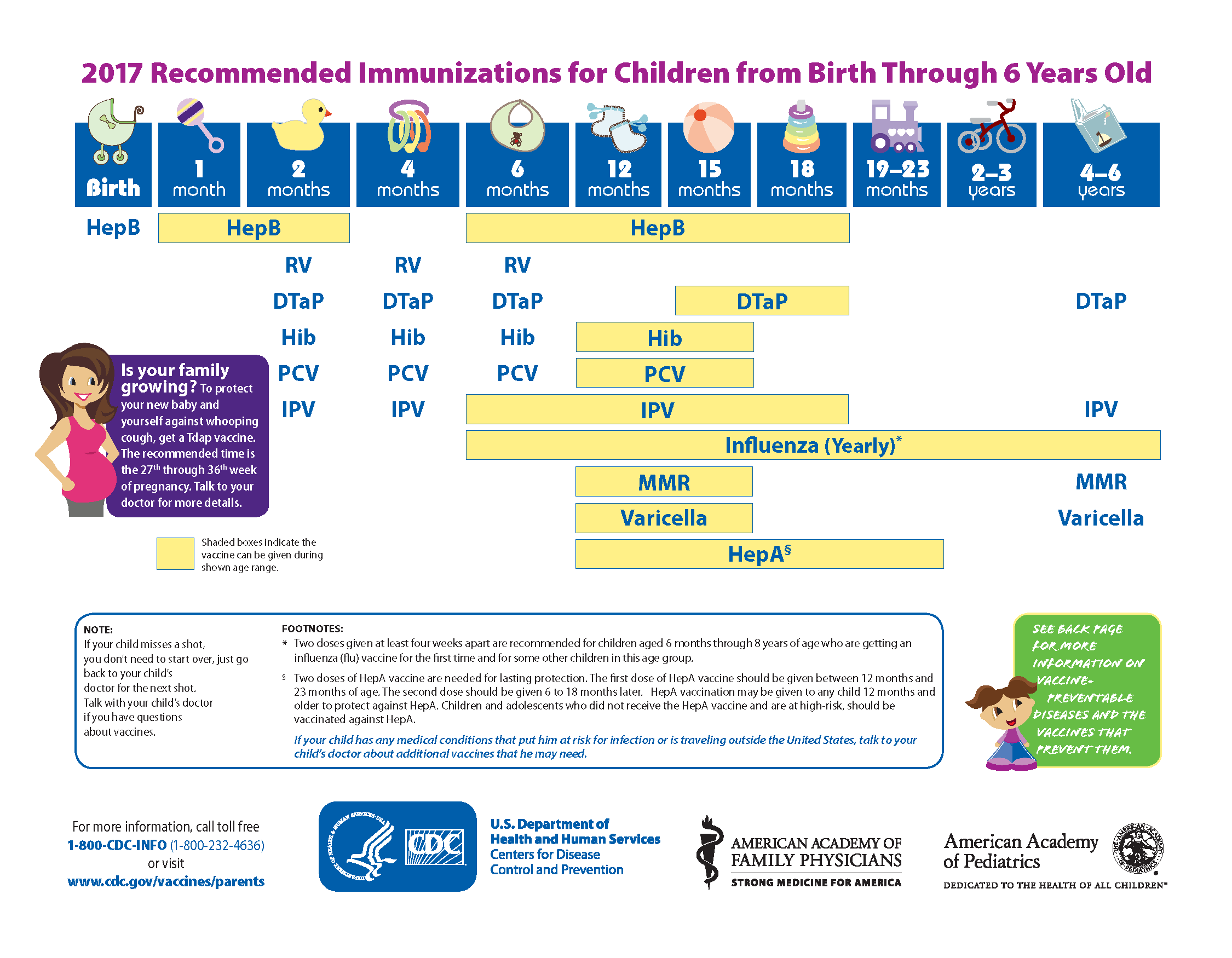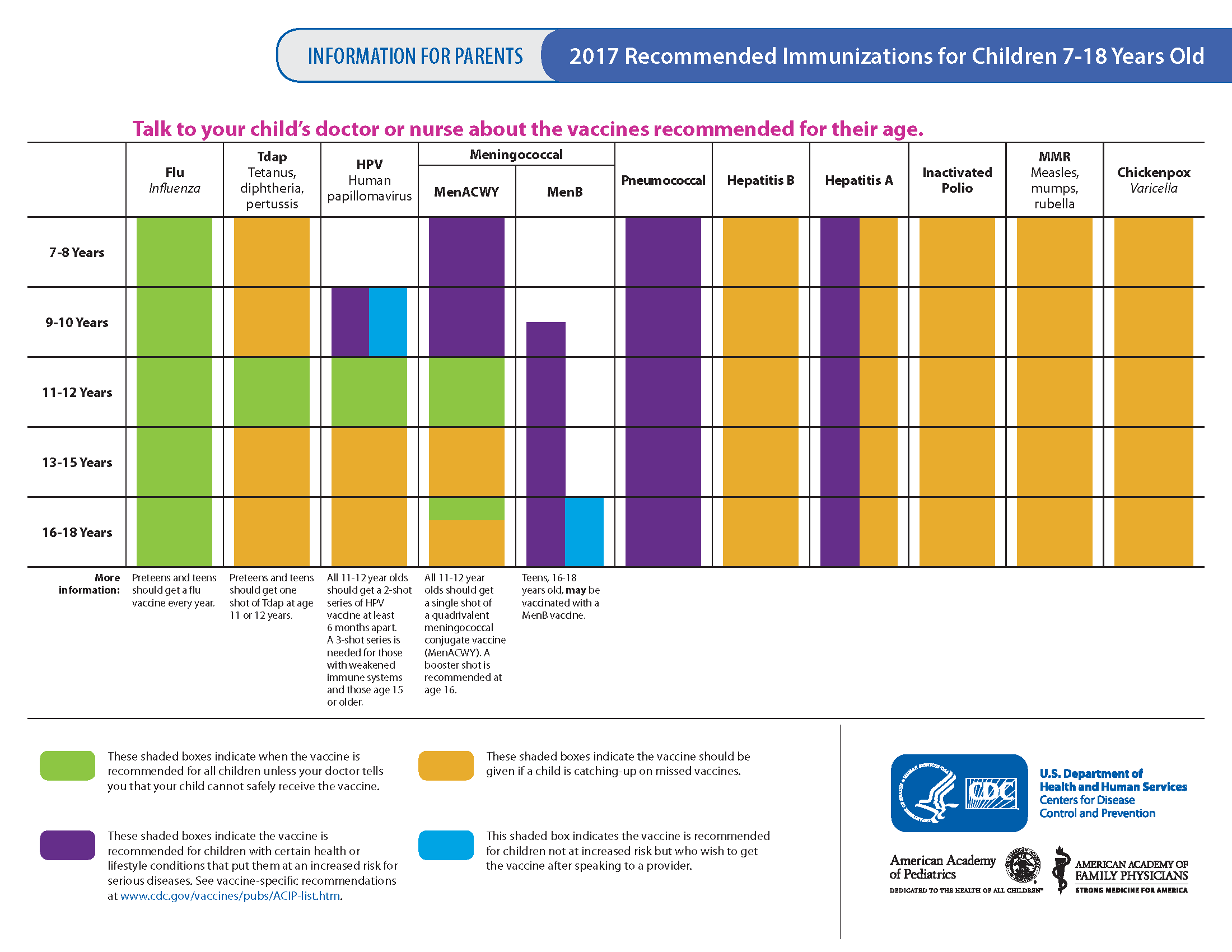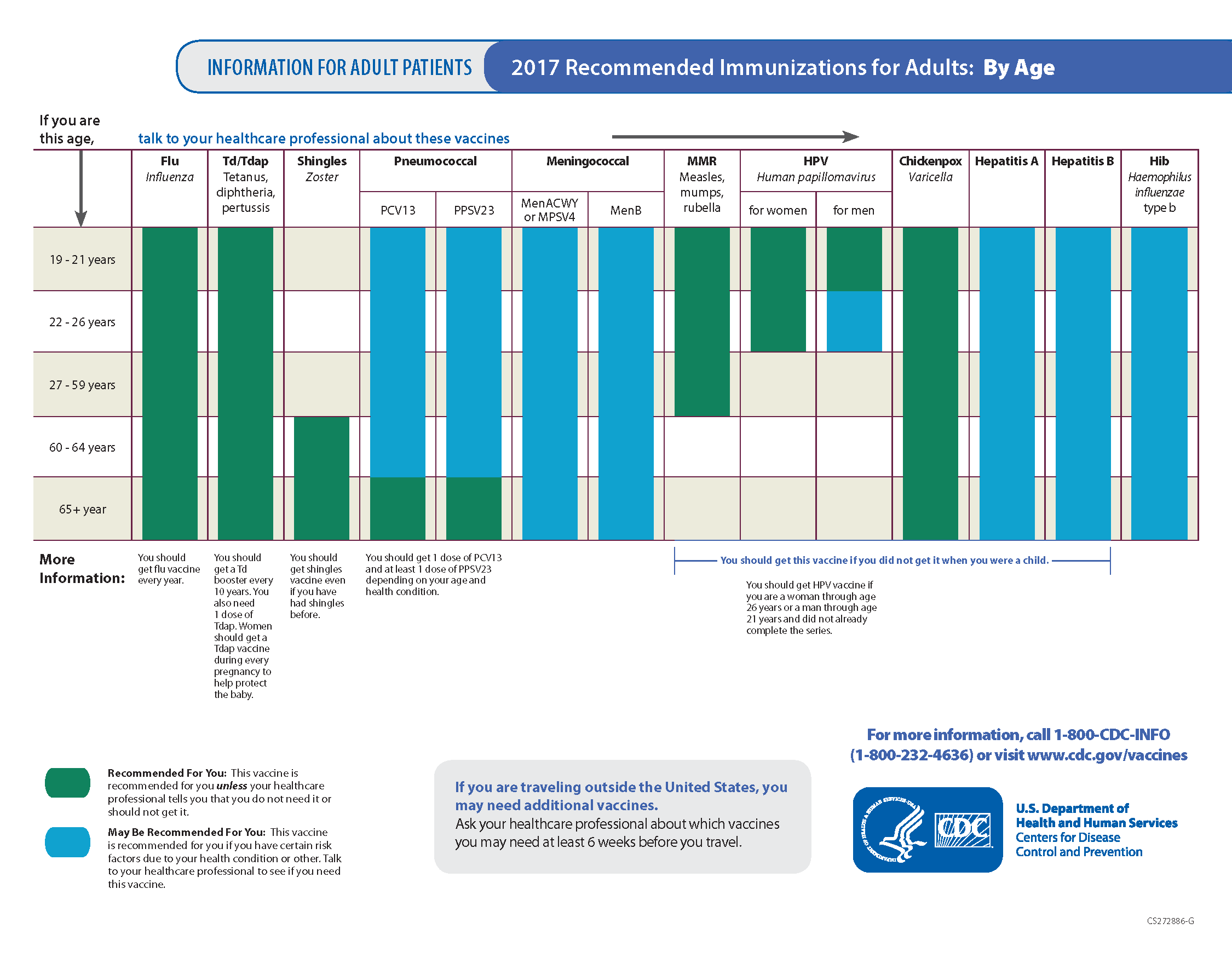The CDC’s Vaccine Schedule
The first documented method of vaccination came from Edward Jenner in 1796. Jenner injected puss from the blister of someone infected with cowpox into someone who had yet to come in contact with the virus, succeeding in immunizing the first individual against smallpox.
From this time, scientists continued to research vaccine medicine, motivated by high mortality rates that followed epidemics such as Diphtheria, Pertussis, and Polio. Today, the list of vaccine preventable diseases has grown from one to 24, limiting the prevalence of some infectious diseases, and completely eradicating others.
While early immunization schedules were published as part of the Advisory Committee on Immunization Practices (ACIP) general recommendations, since 1995 the ACIP has worked in conjunction with the American Academy of Pediatrics (AAP) and the American Academy of Family Physicians (AAFP) to update the Child/Adolescent immunization schedule yearly.
Although vaccines historically have been intended for children, there are now several vaccines aimed at protecting adults from diseases like the flu, shingles, and pneumonia. The first adult vaccination table was published in 2002 and is updated annually.
The Centers for Disease Control and Prevention (CDC) recommends the following vaccination schedules for children and adults:
Vaccine Schedule for Children up to 6 Years Old
Vaccine Schedule for Children 7-18 Years Old
Vaccine Schedule for Adults
More Info About Recommended Vaccines
More information about specific vaccines can be found here:
- Diptheria, Tetanus, Pertussis
- Haemophilus Influenzae Type B
- Hepatitis A
- Hepatitis B
- Human Papillomavirus
- Seasonal Influenza
- Measles, Mumps, and Rubella
- Meningococcal
- Pneumococcal Conjugate
- Polio
- Rotavirus
- Varicella
National Vaccine Injury Compensation Program
Vaccines are an important part of public health, working to save lives by preventing disease. Most of the time, vaccines are administered without any serious problems. Like with any medication, however, there is a risk of side effects, ranging from mild to serious.
For this reason, the US government created the National Vaccine Injury Compensation Program (NVICP), a “no-fault” alternative to the traditional legal system. Petitions can be filed by any individual, at any age, after developing an injury believed to be a result of a covered vaccine, if jurisdictional requirements are met.
Conway Homer, P.C. is the most experienced vaccine injury law firm in the United States. We represent clients from all 50 states and have advocated for landmark cases that have shaped the Vaccine Program and made it friendlier and more generous to those individuals who suffer from vaccine injuries.
To get in touch with our dedicated team, click here for a free consultation.





